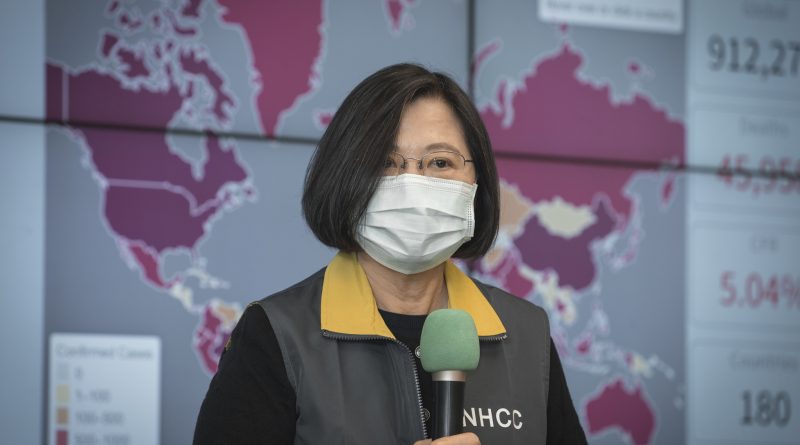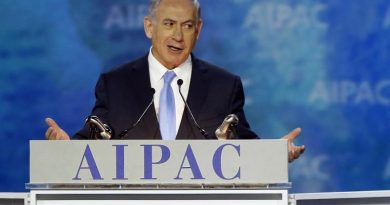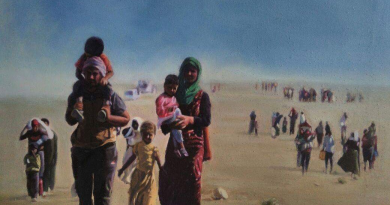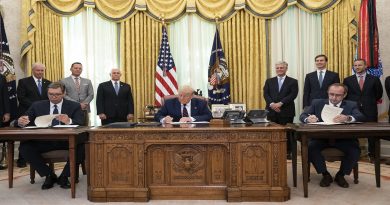Chinese Threats to Taiwan and U.S. Suggest Future Conflict
Jasmine DeLeon
Staff Writer
In recent months, China has threatened Taiwan, increasing tensions and the risk of war. American involvement in the conflict raises serious concerns about the role the United States will play if tensions continue to escalate.
In 2019, President Xi Jinping publicly stated that China would not “renounce the use of force and the option to use all necessary measures.” This year, China has repeatedly sent warplanes into and around Taiwanese airspace, according to Deutsche Welle. Shashank Joshi, defense editor of The Economist, stated “what we are seeing is a level of military activity… around China that is unprecedented in twenty years,” demonstrated by aerial and naval exercises around the island. According to The Economist, China annually “adds to its forces more than the sum total of Taiwan’s entire forces.”
On October 10, President Tsai Ing-wen of Taiwan delivered a speech in celebration of National’s Day. She stated, “if Beijing can heed Taiwan’s voice, change the way it handles cross-strait relations, and jointly facilitate cross-strait reconciliation and peaceful dialogue, I believe that regional tension can surely be resolved,” which was interpreted as an extension of peace, according to The Washington Post and a transcript of Tsai’s speech. This is a clear shift in policy from Tsai’s 2019 National’s Day speech, in which she stated that Taiwan must “stand up in defense” against China and rejected China’s proposal of “one country, two systems,” reports AP.
In response, China released videos on China Central Television (CCTV) of a simulated military invasion of Guam and a forced confession from a Chinese prisoner suspected of spying for Taiwan. The CCTV videos included propaganda of military threats against Tsai’s political party if Taiwan does not reunify with China or continues to build relations with the United States, states The Washington Post.
In the past few years, the U.S. and Taiwan have moved toward closer diplomatic relations. In December 2016, Tsai spoke with President Trump, breaking decades of U.S. policy of severed ties between Taiwan and Washington since 1979. President Tsai’s office confirmed in a statement that Tsai discussed “establishing a closer cooperative relationship,” “improving Taiwan’s economy” and “strengthening its defenses,” reports The Wall Street Journal.
While Taiwan and the U.S. do not have a formal alliance, the U.S. has taken steps to extend diplomatic relations to the island. In August, Alex M. Azar II, the U.S. Secretary of Health and Human Services, visited Taiwan, making history as the highest-level visit to Taiwan by an American official since 1979. Before Azar and Tsai met, China sent two fighter jets toward Taiwan, which were driven out by a Taiwanese aircraft, according to The New York Times. Likewise, Under-Secretary for Economic Growth, Energy, and the Environment Keith Krath became the highest-level official from the State Department to visit Taiwan after attending a memorial service for former President Lee in September. This visit drew criticism from China, according to The New York Times.
The U.S. has expressed support for Taiwan both politically and militarily as well, which has led to future deterioration of diplomatic relations between the U.S. and China . According to Reuters, the U.S. is moving toward selling military equipment to Taiwan. Al Jazeera reports that the potential deal is worth $1.8 billion in advanced weapons. Zhao Lijian, a spokesperson for the Chinese Ministry of Foreign Affairs, stated that the U.S. is “sending a very wrong signal,” and China will make a “legitimate and necessary response according to how the situation evolves.”
Joseph Wu, Taiwan’s Foreign Minister said that the threat of China is “serious” and has openly called for Taiwan to enter the international diplomatic community, reports Deutsche Welle. Wu warned against the consequences of not bringing Taiwan out of diplomatic isolation, threatened by China’s aggression. He stated that “If China succeeds in taking Taiwan over — I think the rest of the world, especially for democracies, is going to feel the heat. China is expanding outward. Taiwan happens to be on the front line.” According to BBC, only fifteen countries formally recognize Taiwan, meaning the small island nation is not part of the UN or its sub organizations.




